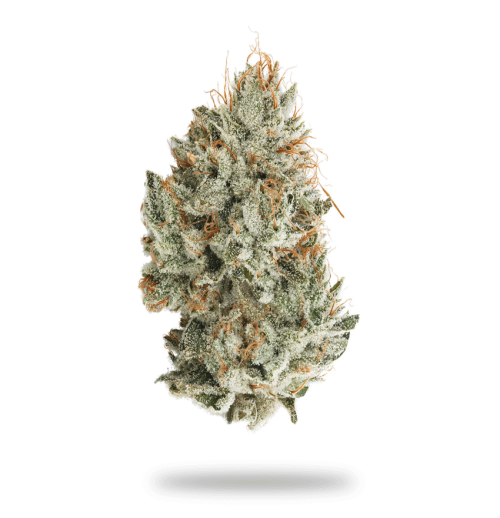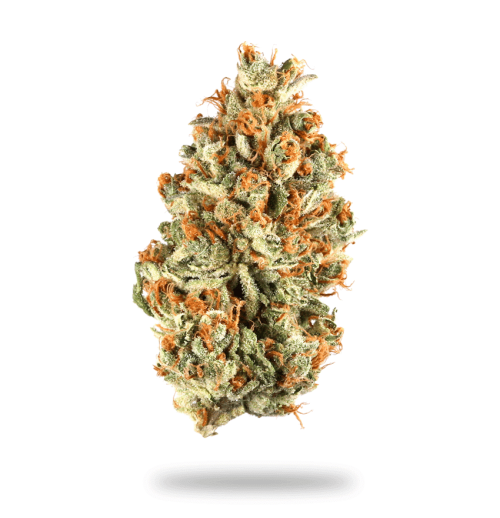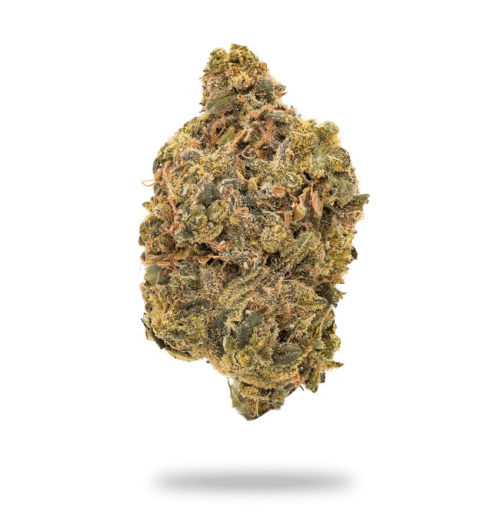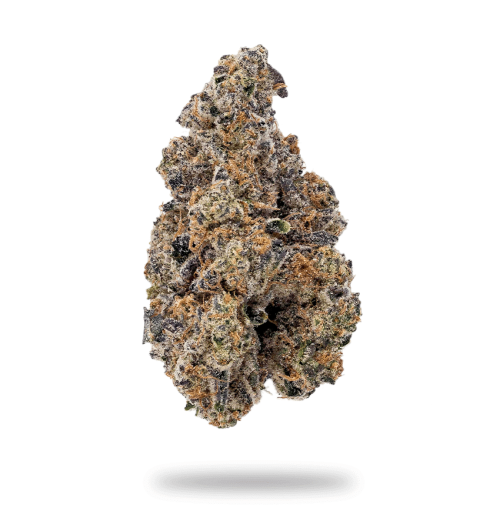Import Cannabis to Switzerland
Home » Import Cannabis to Switzerland
How to Import Medical Cannabis to Switzerland
- Last Update: April 2023
- By: WeGROW Team
In the expanding and quickly evolving Swiss cannabis market, there will be a lot of opportunities for companies to innovate and offer new forms of cannabis based products. If patients can acquire trustworthy, quality-controlled, secure, and reasonably priced medical cannabis products, the success of the entire industry whose primary goal is to facilitate patients' access to medicinal cannabis, will enjoy it.
Due to ambiguous statutory requirements and inconsistent, even arbitrary enforcement, the regulatory environment for cannabinoid-based goods in Switzerland is currently characterized by a high level of ambiguity. However, recent legislative developments are giving Switzerland the chance to become recognized as a leader for an innovative, pragmatist, sane approach to drug policy.
The Swiss Federal Narcotics Act has been modified to permit the medical use of cannabis starting of August 1, 2022. Cannabis can be grown, processed, traded, or imported for medical use according to the revised drugs law. The Swiss government regulates the use of various narcotics like methadone or morphine as well as cannabis for medical purposes.
An operational license from the relevant Swiss authorities must be secured in order to conduct cannabis business in Switzerland. In order to do this, a person must be appointed who has the necessary personal credentials and is in charge of ensuring that Swiss drug laws are followed.
All businesses engaged in cannabis cultivation, production, processing, or commerce, including import and export, must have a responsible person on staff. The licensing authorities examine whether the technical and operational standards have been met; if required, they may also do so during a subsequent inspection. It is not necessary to have a permit or a responsible person to consume cannabis that is solely cannabidiol (CBD) or tetrahydrocannabinol (THC) with an average total level of less than 1.0%. Such goods, like pastes or oils containing CBD, are exempt from the Narcotics Act.
A marketing authorization is needed to use cannabis as a medication. The product needs to undergo clinical testing for quality, safety, and efficacy. There are now only two cannabis-containing medicines that are authorized in Switzerland. As an alternative, pharmacists are permitted to produce cannabis for medical use. Such preparations, which are based on dried flowers or extracts, call for a medical prescription that is written by a physician acting in the course of his or her official duties and following a personal examination of the patient. The pharmacist must also make the preparation in compliance with the Swiss Pharmacopoeia’s regulations and the applicable GMP standards (Pharmacopoeia Helvetica, Ph. Helv., GMP for medical products in small amounts). The essential component has to be created for medical purposes, and under respective licenses.
Cannabis advertising is not allowed. This does not, however, apply to expert promotion of cannabis-based medicines that have received marketing authorisation. CBD-based health goods may advertise to the general population.
Cannabis used for recreational purposes cannot presently be produced, imported, or sold in Switzerland. Tetrahydrocannabinol (THC) and cannabidiol (CBD) with an average total content of less than 1.0% are exempt from this rule.
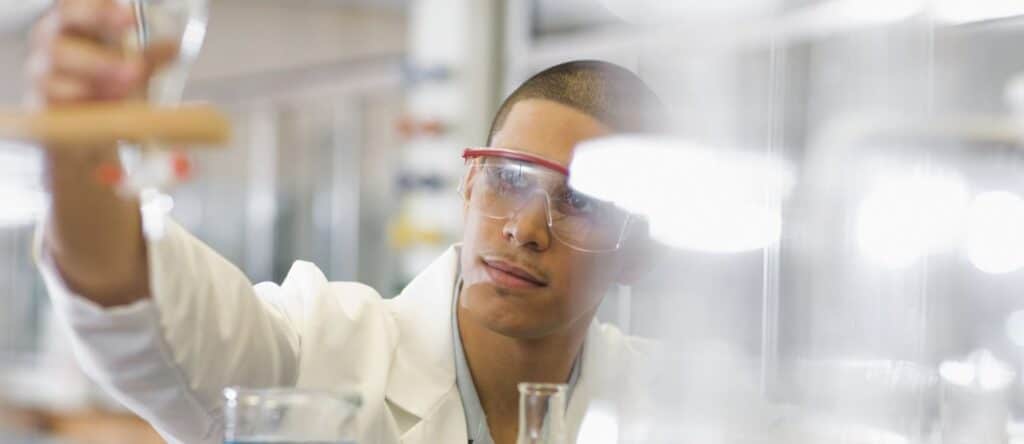
Swiss Economic Benefits of Cannabis
The import industry of medical cannabis is a growing sector in Switzerland, with potential economic benefits for the country. Switzerland has a reputation for producing high-quality products and has a favorable regulatory environment for the medical cannabis industry. Here are some of the economic benefits that the import and export industry of medical cannabis can bring to Switzerland.
Job creation – The growth of the medical cannabis industry in Switzerland can lead to the creation of new jobs. These jobs can be in areas such as research and development, cultivation, processing, and distribution. This can help to reduce unemployment in the country and stimulate economic growth.
Increased tax revenue – The import and export of medical cannabis products can generate tax revenue for the Swiss government. This can be used to fund public services and infrastructure, such as healthcare and education. The tax revenue generated can also help to reduce the budget deficit and improve the overall financial health of the country.
Increased foreign investment – The growth of the medical cannabis industry in Switzerland can attract foreign investment. This can support the development of new businesses and technologies in the sector. The investment can also help to create new jobs and stimulate economic growth.
Boost to the Swiss economy – The import and export of medical cannabis products can contribute to the growth of the Swiss economy. This is particularly true in regions where the industry is concentrated. The growth of the industry can lead to increased demand for goods and services, which can benefit local businesses and communities.
Increased research and innovation – The development of the medical cannabis industry in Switzerland can support research and innovation. This is particularly true in areas such as drug delivery systems, cannabinoid formulations, and therapeutic applications of medical cannabis. The research and innovation can lead to the development of new products and technologies, which can benefit the industry and the wider economy.
Industrial use
Cannabis cannot be grown without using certified seeds from the strains mentioned on the European variety list. Varieties that are permitted in the European Union for industrial use are likewise permitted in Switzerland. The same holds true for strains with an average THC total concentration of less than 1%. The competent Swiss authorities must grant a license before cannabis can be grown for medical purposes.
Food: CBD-containing foods and dietary supplements are regarded as new foods. Where they have been given the go-ahead by the relevant Swiss authorities, they are marketable. Without prior marketing authorization, hemp seeds, hemp seed oil, hemp seed flour, defatted hemp seed, and hemp infusion can be sold.
Cosmetics: Only natural CBD extracted from the seeds or leaves of the cannabis plant is permitted for use in cosmetics. Because synthetic CBD is not expressly regulated, it is allowed to be used in cosmetics.
Liquids for e-cigarettes: CBD-containing liquids for cigarettes are often acceptable as long as they only release compounds in amounts that don’t pose a harm to your health.
Medical Cannabis in Switzerland
Over 96% of the participants in a study by the Institute for Addiction and Health Research for the Federal Office of Public Health (FOPH), the results of which were released in February 2020, reported that using medical cannabis had improved their symptoms. The “extreme improvement” was noted by half of the subjects. Many of the individuals who previously had prescriptions for cannabinoid-based medications reported being able to either totally stop taking other prescription medications or at the very least significantly limit their use.
In Switzerland, medical cannabis is currently officially prescribed to over 3,000 individuals. According to the FOPH, over 110,000 people buy “medical” cannabis illegally from the black market, exposing them to serious health risks due to a lack of quality control and an increase in the amount of chopped and contaminated products on the market. The number of recreational cannabis users, which is conservatively estimated to be three times the FOPH amount, is not included in this figure.
In Switzerland, cannabis with a THC (tetrahydrocannabinol) level of 1% or more is regarded as a forbidden drug. Cannabis with a THC level over 1% may be prescribed for medical reasons under very tight conditions, but only with an unusual permit from the FOPH.
On March 19, 2021, the Swiss Parliament adopted a change to the law that will make it easier for people to get cannabis-based medicines. This change essentially says that people can start using cannabis for medical purposes starting in the fall of 2022, as is predicted. The recently passed law amendment makes it easier for thousands of patients to obtain cannabis-based medicines as part of their medical care. In situations of cancer or multiple sclerosis, medications containing cannabis help reduce chronic pain.
THC is primarily utilized for diseases involving chronic pain, spasticity, and spasms, as well as nausea and appetite loss (usually in the context of chemotherapy). It is also the cannabinoid that has received the most research to date. Only approved ready-to-use pharmaceuticals may be marketed in Switzerland if they are approved by Swissmedic, the Swiss Agency for Therapeutic Products.
Only two cannabis-based ready-to-use medications have currently been licensed by Swissmedic, one of which is Sativex®, which has a THC level of more than 1%. Patients with multiple sclerosis who experience spastic convulsions may be taken Sativex without a specific authorization. A FOPH exemption permission is required for any other indication.
The second pharmaceutical is Epidyolex, a CBD-based medication that received Swissmedic approval in 2021. Cannabidiol, the active ingredient in Epidyolex, is a medication for treating epilepsy (seizures). An oral medication is called Epidyolex. Patients two years of age and older with Lennox-Gastaut syndrome or Dravet syndrome, two uncommon disorders linked to seizures and fits (epilepsy), are treated with it in conjunction with other medications.
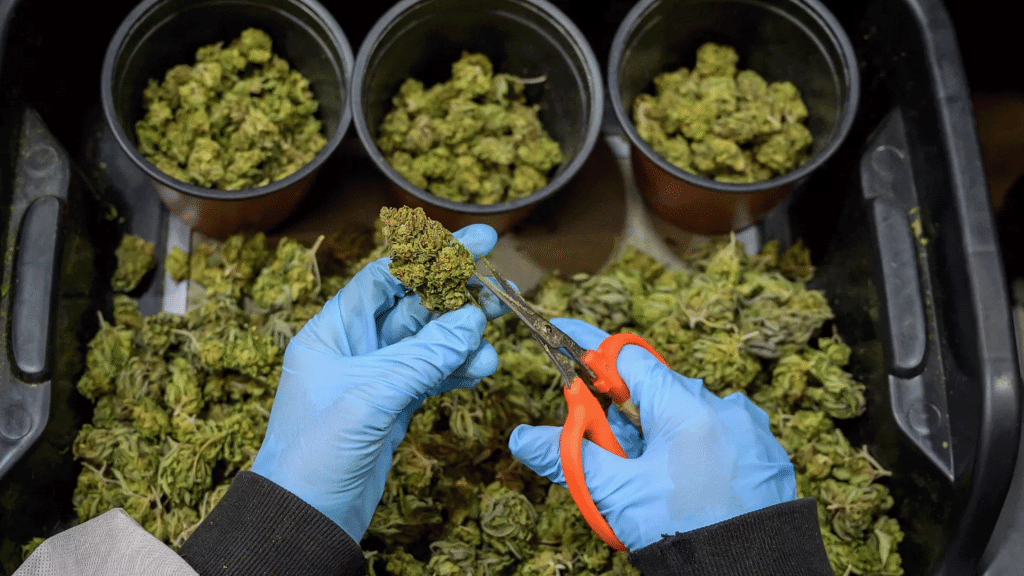
Status of Importing Medical Cannabis Products into Switzerland
To import medical cannabis products into Switzerland, the importing company must obtain an import permit from Swissmedic. This permit is valid for a limited period of time and is required for each import.
The medical cannabis product being imported must meet Swiss quality standards and must be produced by a licensed supplier who is authorized to produce and distribute medical cannabis in their country of origin. The product must also be accompanied by a certificate of analysis that verifies its cannabinoid content, potency, and purity.
The import of medical cannabis products is only permitted for medical purposes and must be prescribed by a licensed medical practitioner who is authorized to prescribe controlled substances. The patient must have a medical condition for which medical cannabis is an appropriate treatment option.
Swissmedic reviews each application for the import of medical cannabis products and makes a decision on whether to approve the import. The importing company must provide all necessary documentation, including the import permit, medical prescription, and a detailed description of the intended use of the medical cannabis product.
EU-GMP certification
A Good Manufacturing Practice (“GMP“) certificate is required in accordance with the rules governing medicinal products in the European Union (“EU”) and to be able to import bulk cannabis to Switzerland also. The EU GMP certification is acknowledged by the Swissmedic.
EU-GMP standards for pharmaceuticals are among the most rigorous in the world, demanding the highest levels of quality assurance and product consistency. Usually following a pre-audit review by a local compliance Auditor. A comprehensive inspection is conducted over a 4-day period by government officials from the responsible agency on-site.
Medical Cannabis like other medicines must have a clearly defined composition. This means the cannabinoid and terpene content is consistent from one batch to another.
Such consistency is important for:
- Doctors and their patients – to assure dosage composition and repeatability
- Researchers – to compare findings from clinical trials and studies across time
- Industry – to access GMP-certified active pharmaceutical ingredient, and therefore guarantee seamless GMP manufacturing
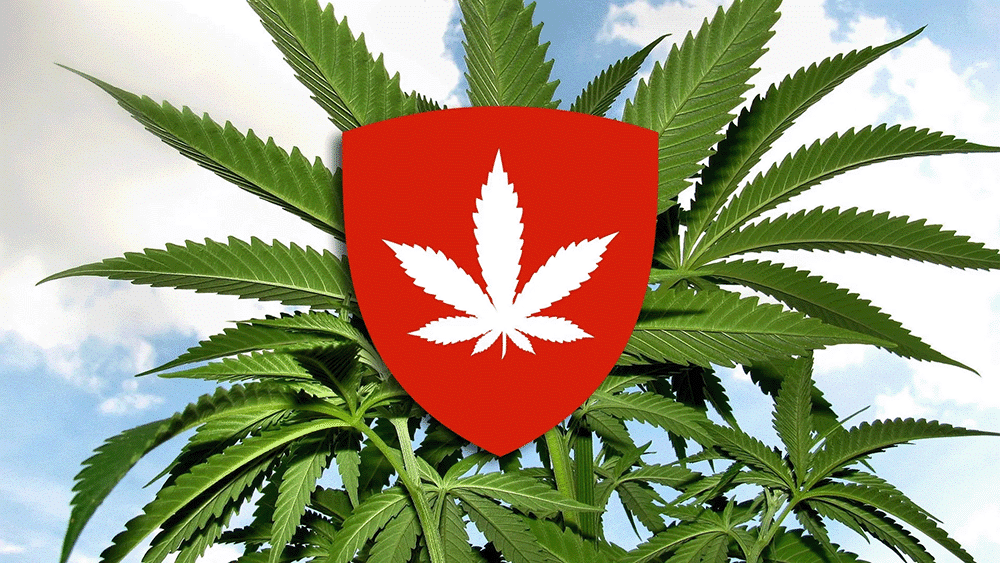
Swiss Import Process of Medical Cannabis
The import of medical cannabis to Switzerland is subject to strict regulations and requirements from both the Swiss Federal Office of Public Health (FOPH) and the Swiss Agency for Therapeutic Products (Swissmedic). Here are the steps involved in importing medical cannabis to Switzerland:
Step 1: Obtain an import permit
The importing company must obtain an import permit from Swissmedic. This permit is required for every import and is valid for a limited time period.
Step 2: Source the cannabis
The importing company must identify a reliable supplier of medical cannabis that meets Swiss quality standards. The supplier must have a license to produce and distribute medical cannabis in their country of origin. Thats why WeGROW in Lesotho is the perfect source of medical cannabis. Read more about it here.
Step 3: Provide documentation
The importing company must provide documentation to Swissmedic that demonstrates the quality, safety, and efficacy of the medical cannabis being imported. This documentation should include a certificate of analysis from the supplier, which verifies the cannabinoid content, potency, and purity of the product.
Step 4: Submit an application to Swissmedic
The importing company must submit an application to Swissmedic that includes all the necessary documentation, import permit, and medical prescription. The application must also include a detailed description of the intended use of the medical cannabis.
Applications must be submitted to the FOPH with a legal authorization attached or be signed by the person in charge of carrying out the import process. The following address should receive postal applications:
Confidential
Federal Office of Public Health
Prevention of Non-Communicable Diseases Division
Policy Bases and Implementation Section
Schwarzenburgstrasse 157
P. O. Box
3003 Berne
Switzerland
The FOPH has the right to ask for more details and paperwork at any time.
Please account for processing time when submitting your application.
Step 5: Arrange transportation
Once the import has been approved, the importing company must arrange for the transportation of the medical cannabis to Switzerland. The product must be transported in accordance with Swiss regulations and must be accompanied by all necessary documentation.
Step 6: Receive the product
The importing company must receive the medical cannabis and ensure that it meets the quality and safety standards required by Swiss law. The product must be stored in a secure location and must not be distributed until it has been approved by Swissmedic.

Benefits of Importing from WeGROW
Pricing: Medical cannabis is still far too unaccessible and expensive, especially for out-of-pocket patients. Yet high quality cannabis can be grown very cheaply in many parts of the world like in Africa. We are bringing it to Switzerland. We guarantee highest quality through our production process and pass on the price advantages to patients through low production costs and high volumes.
Branding: WeGROW operates as a trusted long-term production partner offering white or private label services for the importer to build their brand in the markets they operate.
Market Fit: WeGROW fullfils the strict Swiss and European quality standards for medicinal cannabis. As a result, patients receive cannabis flowers as high-quality medicinal products that meet all regulatory requirements according to the EU-GMP standard.
Logistics: Sending cannabis around the world is not that easy. In close coordination with WeGROW’s processing partners, they coordinate the obtaining of import and export permits and advise them on all issues that may arise – from the correct transport packaging to the choice of the logistics company. Once arrived in Switzerland, the cannabis gets prepared for production into a medicinal product in a highly secured and climatically standardised storage facilities.
Processing: The essential manufacturing steps for cannabis medicinal products take place in an EU GMP (Good Manufacturing Practice) certified production facility in Germany. Every single flower is processed and inspected. We do not use ionising radiation at all, which helps to protect the terpenes and active substances in the plant.
Quality: Protocols of controls and laboratory analyses at various points along the production process ensure the reliable pharmaceutical quality of the end product. Patients can thus concentrate fully on their therapy and do not have to worry about the quality of the medicines.
About WeGROW's Cannabis Production
‘WeGROW’ has both its cultivation and processing facilities based 1,600 meters above sea-level in the mountains of Lesotho, where clean air and peaceful environment ensure the growth of high quality cannabis plants according to strict EU-GMP Principles for cultivation, extraction and the processing of cannabis for the medicinal and pharmaceutical markets by exporting medical cannabis to Germany and other global cannabis markets.
The 60,000 square meter cannabis facility in Lesotho has 30,000 square meter of production space in a unique hybrid greenhouse environment and employs >100 members of the surrounding communities.
The greenhouse is built to harness the power of the sun and improve the quality of the cannabis flower. The unique greenhouse design utilizes the power of the sun to increase terpenes and resin development throughout the life cycle of the plant. This unique growing technique, paired with innovative processing techniques, allows for a finely cured and crafted product that consumer across Europe enjoy.
WeGROW’s products are reliable because each variety contains a consistent amount of cannabinoids and terpenes. They are also free of contaminants such as microbes, pesticides and heavy metals. These qualities make WeGROW cannabis products reliable and safe for patients, while ensuring distributors a safe route to import cannabis from Africa.
Energy Efficient
WeGROW is producing at highest quality in a facility that sets the gold standard for the cannabis industry. Our greenhouses are powered by sunlight to provide optimal growing conditions.
Accessible
Compassionate pricing is a game-changer that not only subscribes to our values of accessibility for all, but makes us highly competitive as a supplier to international markets.
About WeGROW's Organic Rich THC Medical Strains
As the leading exporter of Cannabis products out of Lesotho we have developed a unique genetic portfolio of 13 stable high demanded medical grade strains backed with years of successful reputation import bulk medical cannabis to Europe. These strains are highly THC concentrated and specially adopted for chronicle pain syndromes.
Interested in Importing Medical Cannabis to Switzerland?
Leave us a message and one of our Import/Export team members will get back to you ASAP
Share / Send
Quick Navigation
Subscribe for Updates
Share / Send
Frequently Asked Questions and Answers about how to Import medical cannabis to Switzerland
Is medical cannabis legal in Switzerland?
Yes, medical cannabis is legal in Switzerland. However, it is subject to strict regulations and can only be prescribed by doctors under certain conditions.
How can I import medical cannabis to Switzerland?
To import medical cannabis to Switzerland, you need to obtain an import authorization from the Swiss Agency for Therapeutic Products (Swissmedic). The product must also meet certain quality and safety standards.
What are the economic benefits of the cannabis industry in Switzerland?
The cannabis industry in Switzerland has the potential to generate significant economic benefits, including job creation, increased tax revenue, foreign investment, a boost to the Swiss economy, export opportunities, and increased research and innovation.
Can I grow my own medical cannabis in Switzerland?
No, it is illegal to grow your own medical cannabis in Switzerland. However, you can apply for a license to cultivate cannabis for research purposes.
What medical conditions can medical cannabis be prescribed for in Switzerland?
Medical cannabis can be prescribed in Switzerland for a range of conditions, including chronic pain, multiple sclerosis, nausea and vomiting caused by chemotherapy, and epilepsy. However, the prescribing doctor must follow strict guidelines and ensure that other treatments have been tried and found to be ineffective before prescribing medical cannabis.

